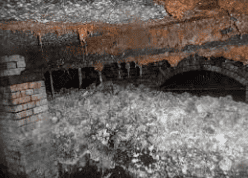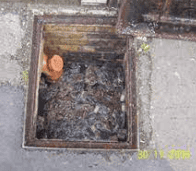It is the stuff of nightmares to have sewers flooded by heavy rains. Having sewage in your home, your garden and in the street is not only an inconvenience, but is also a risk for significant damage to your property and personal belongings if left unattended. The cause of a great deal of flooding in the UK is caused by sewer blockages, and every year there are more than 200,000 reported sewer blockages in the country. It is where Sewer Pipe Lining Wolverhampton companies like https://www.wilkinson-env.co.uk/sewer-repairs-drain-lining-concrete-cutting/drain-repairs/drain-repairs-wolverhampton come in to repair the damage caused by blockages.
As a result of these blockages, a large number of negative impacts are felt on social, economic and environmental levels, such as the pollution of water courses. It is possible for them to result in flooding, affect the longevity of drainage systems, increase maintenance costs, and cause environmental damage to watercourses as well as cause floods.
Several items are regularly introduced by the public to the sewer system, and these items can cause a number of problems in the sewers. There are numerous problems associated with solid waste products, such as sanitary products, nappies, and wet wipes, as they do not break down and dissolve when placed in water like toilet paper does when introduced to water. In some cases even flushable toilet wipes can cause problems as they also do not dissolve easily in water.
Using a sink or drain is not the best method of disposing of fats, oils, and greases since they are among the heaviest waste types. In a liquid state, they are easily poured down the sink, but once they have cooled and solidified, they can easily cause problems in your pipes. There is a great deal of fat, oils, and grease accumulated within the sewer system, and they can act as a potential trap for all the other household waste that accumulates there. This is where ‘fatbergs’ begin to form.
It has been reported that a 10-ton fatberg that measured 40 metres long, was recently removed from a London sewer after it collapsed the sewer pipes, causing £400,000 of damage to the network.


